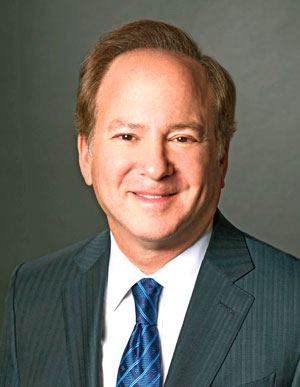Lawyers say a recent Court of Appeal decision in a medical malpractice case clarifies a number of procedural issues in civil jury trials.

In
Surujdeo v. Melady, the Court of Appeal upheld a finding by a jury that two doctors, Donald Melady and Avrum Soicher, were liable for the death of Rossana Surujdeo, who died of a viral infection that attacks the heart just nine hours after she went to the hospital for flu-like symptoms. The jury found that the doctors had breached the standard of care by not seeking out results from two laboratory tests. The other issue at trial was causation and whether there was anything the doctors reasonably could have done to avoid Surujdeo’s death.
The plaintiffs were awarded $600,000 in damages.
Lawyers say the decision provides clarity on a number of issues, including jury polling and instructions, for cases that concern issues of causation.
“The Court of Appeal decision provides guidance on so many different areas of law and that’s why it’s so important,” says Richard Bogoroch, counsel for the plaintiffs. “And it clarifies specifically the causation question for the jury in medical malpractice cases.”
The doctors’ appeal had five main grounds, which claimed the trial judge, Justice Arthur Gans, had made a number of errors.
The court found that while the judge used incorrect language in one of the jury questions, there was no basis to overturn the verdict.
“. . . Although the trial judge used incorrect language in the jury questions regarding causation, no substantial wrong or miscarriage of justice resulted,” said Justice David Brown in the decision.
“In respect of the other grounds of appeal, I conclude the trial judge did not commit the errors alleged.”
The appellants challenged the judge’s language in one of the jury questions, saying he failed to use the “but for” test that was agreed on.
In the proceedings, Gans approved two questions for the jury, which were whether each appellant had breached the standard of care, and if they had, whether that breach was “a cause” of Surujdeo’s death.
The appellants submitted that this was not the “but for” causation test, agreed on by the parties, and that the injection of “a cause” ran afoul of the requirements of the appropriate test.
The court found that while Gans had used the incorrect wording in the question, “the trial judge’s error in respect of the jury question language does not necessitate a new trial.”
The doctors argued Gans had also erred by refusing to poll the jury at their request after the verdict was announced.
The appellants hoped to poll the jury on how they came to their decisions, but the judge rejected the request.
The doctors argued the judge erred in concluding he lacked the jurisprudence to poll the jury.
The Court of Appeal found that the judge has the jurisdiction to poll the jury when warranted, but that his refusal to do so for the reason proposed by the appellants was correct “because the appellants sought to poll the jury for an impermissible purpose.”
The court said that the appellants’ purpose to have the jury polled was to ensure that five jurors agreed on the particulars of their decisions. Brown said jurors are able to arrive at an answer “by different evidentiary routes.”
Christopher Hubbard, who is acting for the doctors, declined to comment.

 In Surujdeo v. Melady, the Court of Appeal upheld a finding by a jury that two doctors, Donald Melady and Avrum Soicher, were liable for the death of Rossana Surujdeo, who died of a viral infection that attacks the heart just nine hours after she went to the hospital for flu-like symptoms. The jury found that the doctors had breached the standard of care by not seeking out results from two laboratory tests. The other issue at trial was causation and whether there was anything the doctors reasonably could have done to avoid Surujdeo’s death.
In Surujdeo v. Melady, the Court of Appeal upheld a finding by a jury that two doctors, Donald Melady and Avrum Soicher, were liable for the death of Rossana Surujdeo, who died of a viral infection that attacks the heart just nine hours after she went to the hospital for flu-like symptoms. The jury found that the doctors had breached the standard of care by not seeking out results from two laboratory tests. The other issue at trial was causation and whether there was anything the doctors reasonably could have done to avoid Surujdeo’s death.